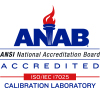 Posted on
Posted on

Cell and gene therapies are an emerging area of medicine that holds significant promise for the treatment of a wide range of diseases. However, these therapies are highly sensitive to temperature deviations, and even slight fluctuations can have a significant impact on their quality and efficacy. This makes temperature monitoring a critical aspect of the production and distribution of cell and gene therapies.
Temperature deviations can occur at various stages of the production and distribution process, including during transportation and storage. During production, temperature deviations can occur during the production of the therapy, which can lead to changes in the structure and function of the cells or genes used. Therapies are often shipped at extremely low temperatures, and any deviation from the recommended temperature range can impact the quality and efficacy of the therapy. Inadequate temperature control during storage can also lead to degradation of the therapy, resulting in reduced efficacy or even complete loss of therapeutic activity.
The impact of temperature deviations on the quality and efficacy of cell and gene therapies can be significant. Deviations outside the recommended range can result in structural changes to the cells or genes used, which can render the therapy ineffective or even harmful. Inadequate temperature control during storage can lead to the degradation of the therapy, which can result in reduced efficacy or complete loss of therapeutic activity.
To mitigate the impact of temperature deviations on cell and gene therapies, it is essential to implement robust temperature monitoring systems throughout the production and distribution process. This includes the use of temperature monitoring data loggers that can provide real-time temperature monitoring during transportation and storage. These data loggers can alert manufacturers and distributors to any deviations from the recommended temperature range, enabling them to take corrective action to prevent the therapy from being compromised.
For more information on how data loggers are used for monitoring temperature-sensitive therapeutic medical treatments, please contact us at [email protected].






